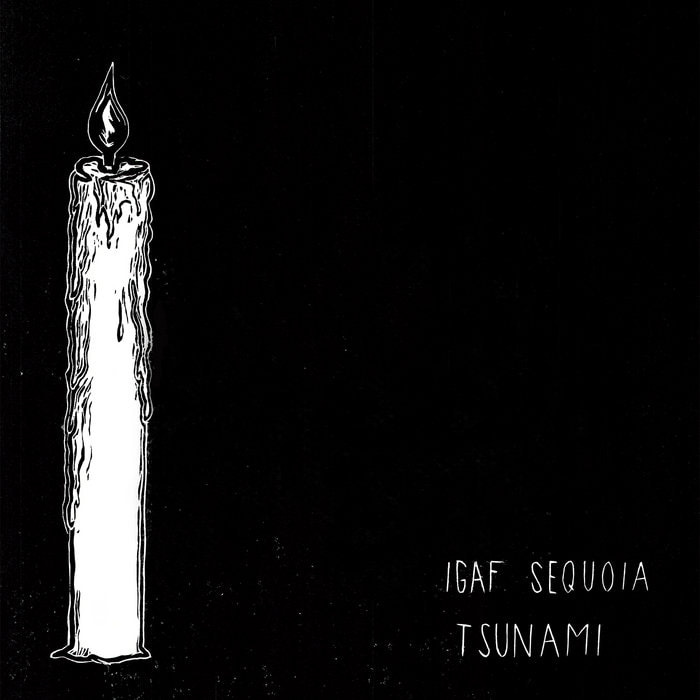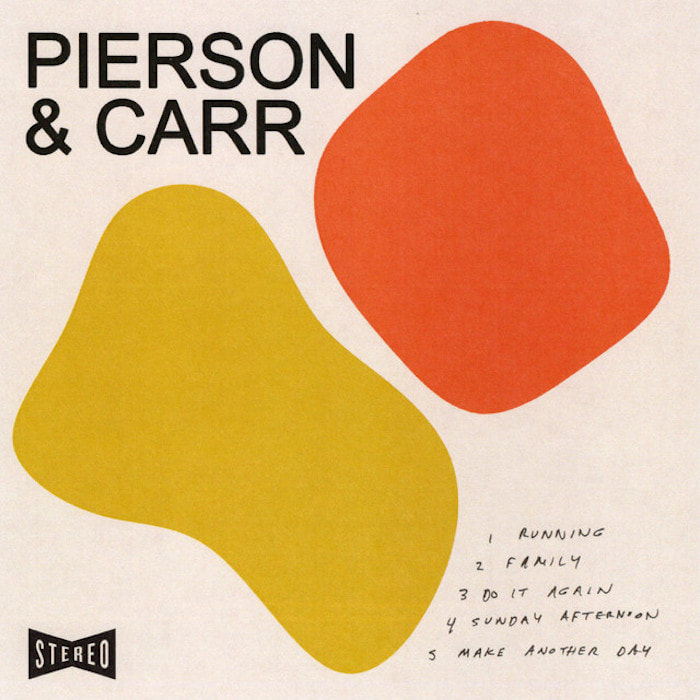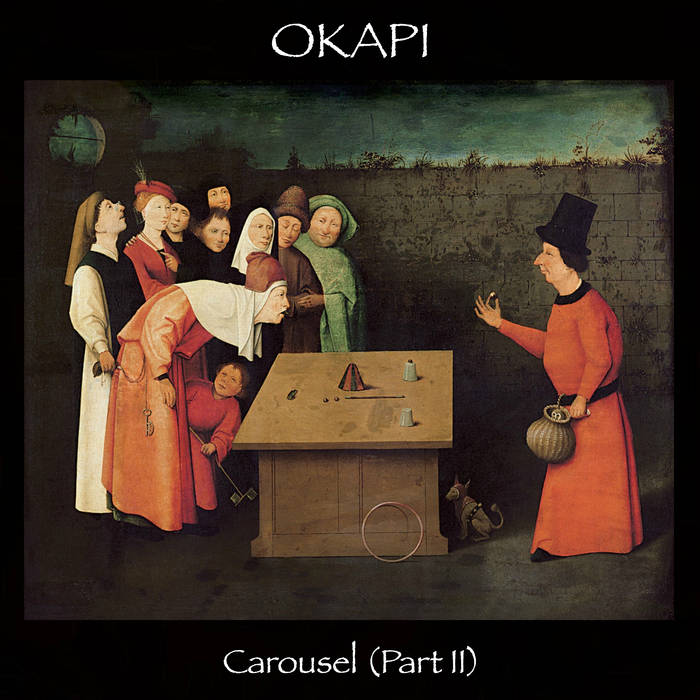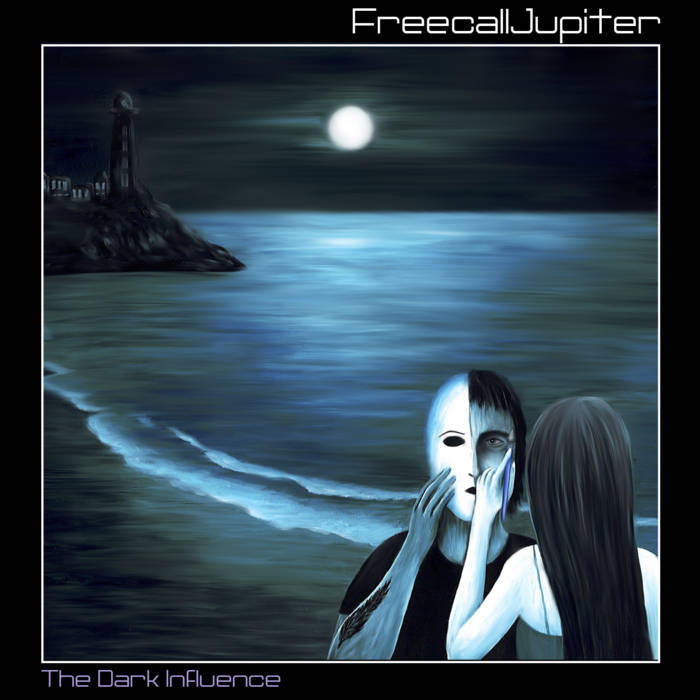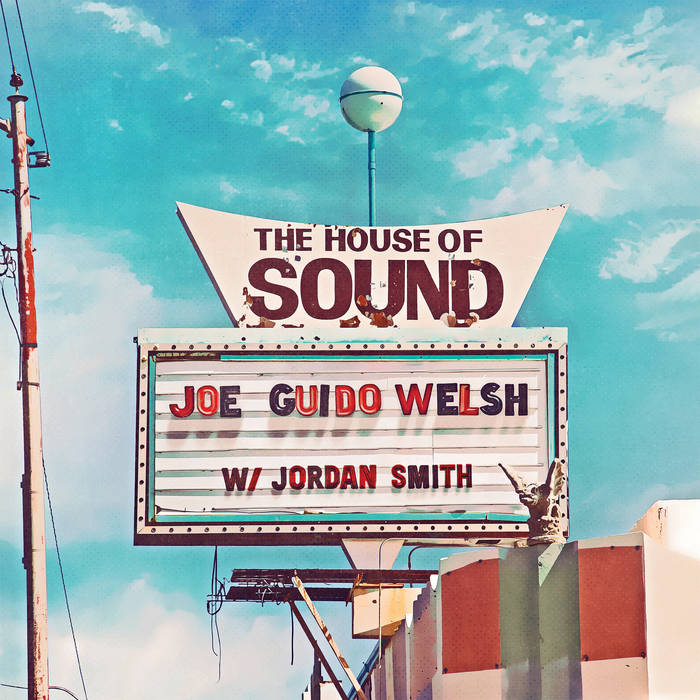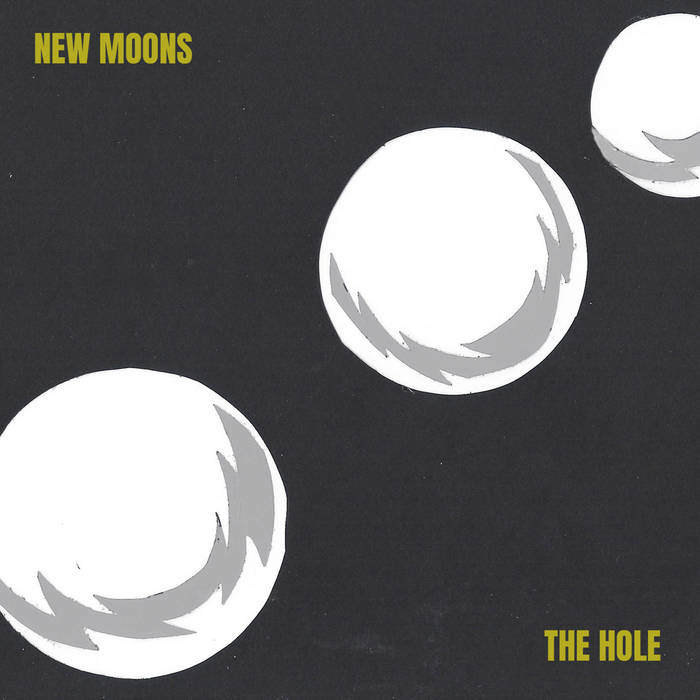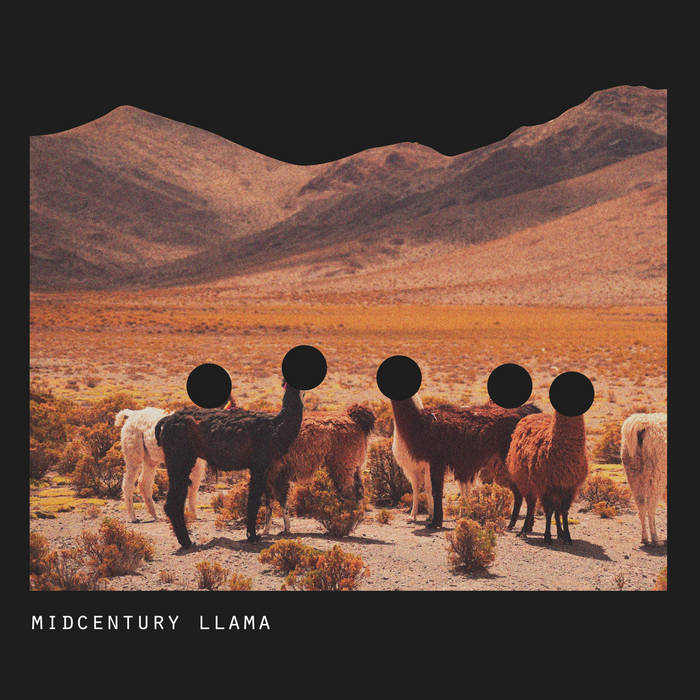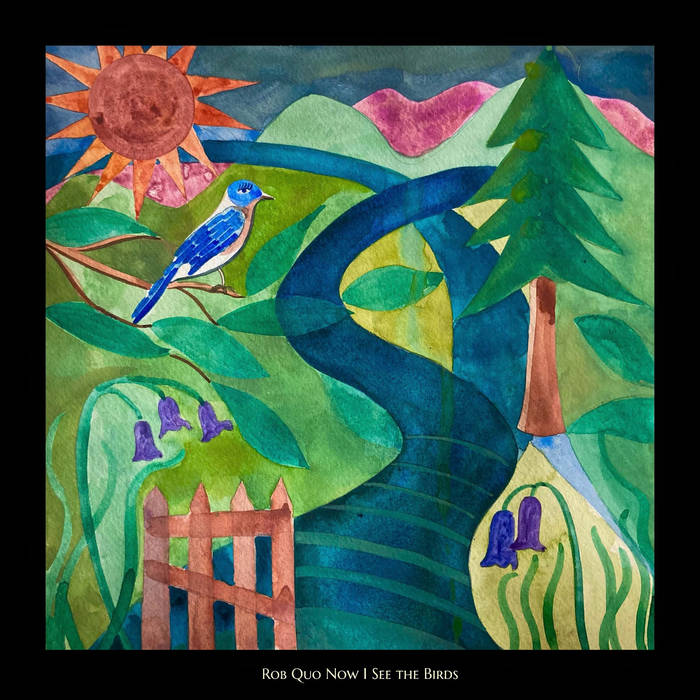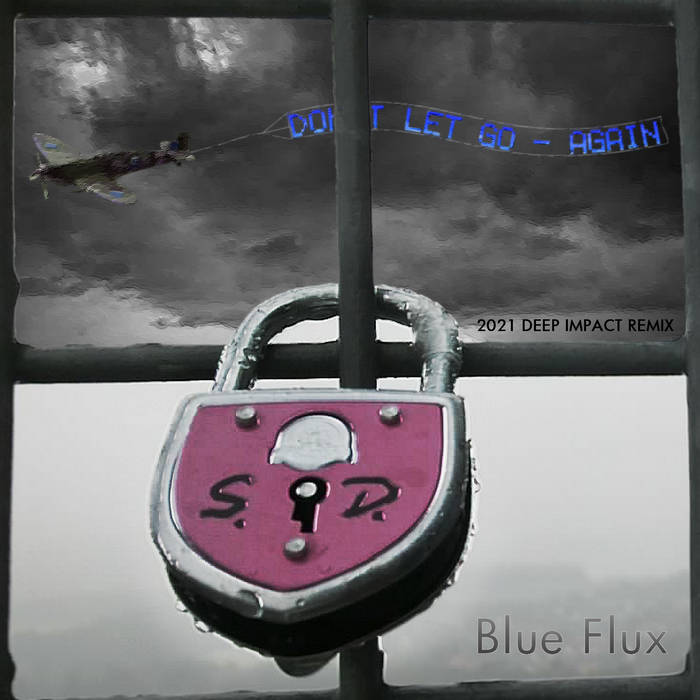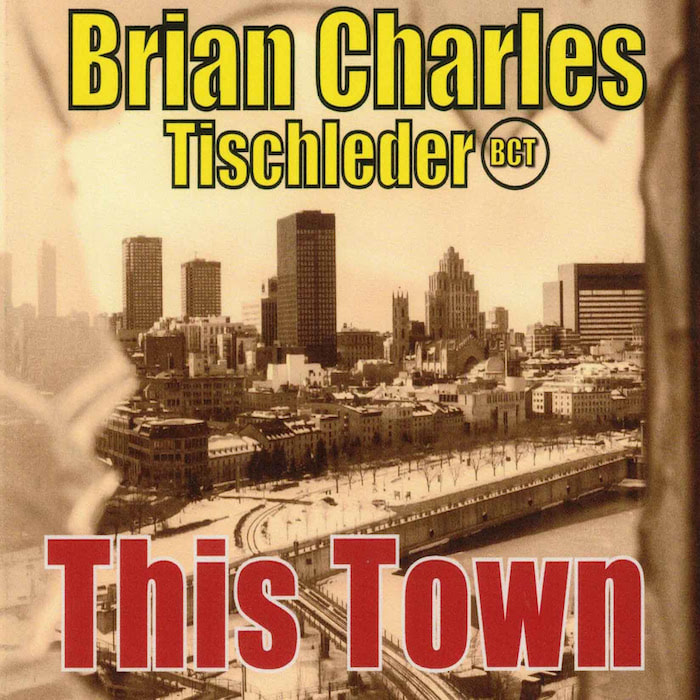|
Described as “love songs for anarchists, Tsunami, ” the fourth release from IGAF Sequoia, hints that even the most stalwart of authoritarian skeptics uncork a decent rosé by the fire every so often. And who can blame them? Invented romance is hopelessly charming on levels that Molotov cocktails never quite scratch.
On Tsunami, this four piece outfit – half of which is comprised of banjos – plumb the depths of sad sack indie-folk in an easily digestible (and extraordinarily melodic) 20 minutes. Comprised of Bethamy Roessler (vocals), Adam Roessler (guitar/bass), Tommy O’Neil (banjo) and Astrid O’Neil (banjo), the band explore themes of heartbreak, pain and addiction. Yet, while the subject matter weighs thickly, the music never plods. Rather, Roessler’s fragile voice – always one dangerous note away from cracking – elevates the tone in the vein of Big Thief’s Adrianne Lenker. It is this very brittleness, when contrasted against buoyant melody, that is the claw in the meat. Stir in a dollop of remarkable choruses, and the recipe further delights. This is pen-to-paper sincerity with a hook, instrumental and angular and easily accessible. Who says anguish needs to be placed like an anvil over our collective chests? We’re certainly allowed to feel it, even if we walk away humming. “Crybaby,” the album opener, scores points for the most upbeat effort at masking melancholy lyricism. And while the tempo slows by “Vena Cava,” the clopping rhythm continues; adopting a countryish lilt amidst Roessler’s graveled yearn. Whether it’s the slow peel of “broken promises under layers of our skin” (from “3AM”) or the pill popped insecurity of “abrasiveness or fading looks” (from the heavily strummed “Codependent”), the punches – thrown mostly (and metaphorically) by ink – never stop. It’s exhausting yet beautiful, like watching a corpse flower bloom in time-lapse. The final tune, “Picking Up Your Teeth,” is a punch-in-the-gut tale of horrifying emotional abuse, juxtaposing liberal values against those of a housebound prison. “I’m a pacifist / you’re a narcissist / I’m a passive aggressivist,” Roessler drones. It’s the kind of poetry that leaves one shaken – chilled, even – particularly upon hearing the revelation at the end. And the clever wordplay, a constant across six songs, should be a jealousy inducing bane for all those who wish they could turn such phrases. Too often musicians craft music for themselves; sprawling think pieces or tomes of self-righteousness that abandon the listener to an afterthought. Or hit them over the head, as is the case with the painfully literal train wrecks of CCR gloss. IGAF Sequoia rejects both notions. By fashioning lyrically sharp expressions that cling, rather than meander, this brand of alternative-folk sticks like a hearty oatmeal. No one’s losing any credibility for adhering to the verse-chorus-verse structure. To the contrary, it keeps us hooked. Hard. And I’ll take a punch or two for the privilege of listening, anarchist or otherwise.
1 Comment
From the north side of Pittsburgh, Pennsylvania comes the musical duo known as Pierson and Carr. Acoustic guitarist and singer John Carr is the primary songwriter, with his partner Dan Pierson bringing up the rear with his “impromptu and stylistic guitar.” After cutting a mostly live demo in 2020, the pair decided to “try a more industry-standard approach to our first EP, the self-titled Pierson and Carr. Producer Steve Soboslai produced and mixed all five tracks. The song structures are elementary with straightforward lyrics, lending themselves to a loose and fluid live performance.” The duo play everything except for the drums by Cory Muro.
Expanding on their sound, the band states that the EP “has an upbeat flow, layered with melodic guitars and rhythmic lyrics. Songwriter John Carr doesn’t think he has anything profound to say, but the songs and the overall sound are authentic.” Recording took place at Mr. Smalls studio in Pittsburgh, with mastering at Sun Room Audio. “Running” begins the EP with a laid back, mellow Grateful Dead vibe. It’s primarily acoustic guitar and drums with lots of room reverb. On this song, Carr’s vocals have a similar phrasing and timbre to Peter Gabriel. The full-band sound kicks in sounding big and celebratory, with Pierson’s electric guitar also channeling Jerry Garcia. The compression is a bit heavy but that seems to be the style nowadays. “Family” takes an immediate U-turn into rockabilly, featuring twangy upbeat guitars and fun, cheese-y organ. Especially nice vocal harmonies here. This song is a real mover, without too many changes in its basic, chug-along structure. “Do It Again” is another upbeat rocker, jam-packed with vocals. I love the bait and switch where you think it’s gonna be a traditional sex rocker, but instead the narrator keeps telling his gal “Listen to me baby: I won’t do it again!” I know that! “Sunday Afternoon” is an insistent blues shuffle with another pleading, world-weary vocal from Carr, while Pierson takes a well-deserved rock solo break. Again the retro-sounding organs add a nice touch. The title “Make Another Day” reminds me of a misprinted happy face coffee cup I once saw that said “Make A Nice Day” instead of “Have A Nice Day.” I actually preferred the mistake, as it puts the responsibility of having a good day onto the person themselves and not fate. This song is a slower, folky tune with those kinds of sentiments. “Something is always better than nothing… you make it look so easy, you make me feel so good.” Carr’s vocals have a Thunderclap Newman feel, with a quite unique, shimmering background pad. Halfway through, the song evolves into harder rock (though still without drums) and Pierson has a final chance to wail away on his axe. This is an auspicious beginning for these talented lads and I look forward to seeing where they go in the future!
Okapi is an avant-rock duo that utilize upright bass, cello and voice for its compositions and performances. Their music is complex but also approachable, with lyrics that are thick, deep and somewhat inscrutable. They also have both black & white and color videos with lots of melting imagery and a cold European flavor. This is the part where I tell you they’re from East Germany, but to my great shock they’re actually based in Asheville, North Carolina! Their new album is titled Carousel (Part II) which you can guess is a follow-up to Carousel (Part 1).
Okapi regard themselves as “…a unique, intellectual, and valuable group whose work has a timeless quality. Our music is direct, confrontational and well-crafted, but also intimate and inviting. The ‘Carousel’ represents the environment around us that's created by external forces, which have the potential to shape us as individuals. To step off this moving carousel is to embark on a personal journey of confronting the true reality, as well as oneself.” In another weird twist, Illinois native Scott Mitchell Gorski (vocals/upright bass) met Missouri native Lindsay Paige Miller (cello) through a Craigslist ad! Miller is a classically trained cellist but was looking for a direction beyond the music conservatory. Gorski, a self-taught bassist and singer, was seeking “new and inventive avenues outside of traditional music.” Together they wound up creating the art they wanted to experience themselves. Gorski’s lyrics are influenced by “existential philosophies, the growth of the individual, and environmental consciousness.” Recording and mixing was by Greg Norman at Chicago’s Electrical Audio, with mastering by Bob Weston at Chicago Mastering Service. For myself, I found the music of Okapi to be immediately fresh and unusual, though there are antecedents. Some of their approach is similar to the classic 1980’s avant-garde groups The Motor Totemist Guild (recently reformed) and the 5 UU’s, as well as the more avant-classical leanings of indie superstar Amy Denio. To stretch it further, fans of Gentle Giant’s classical tendencies may find much of interest here. “Carousel” begins the album showcasing one of the band’s favored techniques, which is tapping or hitting their instruments with their hands or striking their muted strings for various percussive effects, as can be seen in the video for this song. In fact, watching this group’s videos is a great way to more quickly grasp what’s going on musically, as the bass and cello are sometimes hard to separate in one’s mind at first. Regardless, once the music and vocals start, they rarely take a break. The melodies are esoteric and exotic, but sometimes lock into what is indisputably a rock groove, even if just for a few bars. The imagery is vivid, to wit: “Amongst ornamentations of our carousel / We all look out to see / Kaleidoscopic views beneath / The blurred but indiscreet.” The video for this track is quite striking, with carnival rides and eerie cutout silhouettes dancing around the flashing colors. “Through the Teeth” starts on a more classical footing, with darkly gorgeous cello melodies. There’s a fine pizzicato section interspersed with almost stabbing strikes of the cello bow. Gorski again sing-speaks his lyrics in a voice that’s precise and insinuating without overwhelming the music. At about three-and-a-half minutes there’s a wonderful droning section that I could have listened to forever. Kudos to recordist Greg Norman for the clean resonance of both stringed instruments. “The Hand” begins with more hand percussion, then creates a kind of Handmaid’s Tale of the mind. Creepy, but melodically inventive, especially the fast section at the very end. “The Ferryman” has no lyrics, but musically portrays an old, wise, solitary man who operates a ferry at a desolate river. Many of his riders tell him sins, secrets and dreams. The music evokes the sound and feel of the old man’s oar hitting the boat, the water splashing and the rush of soul catharsis from the riders. “Mirror of Majesties” starts with riffs that sound like boogie-woogie, which are then overlaid with heavy-metal like cello melodies. Though the lyrics are typically dark, this track is probably the most accessible to new listeners, especially if you watch the amazing black & white video that intercuts performance footage with weaving machines, broken windows and insects. It’s almost like orchestral Metallica. “Child Kingdom” reverts to the chamber-music sound of the group, with more unsettling lyrics: “Can you see beyond the trees? / Did you climb the highest peak? / Have you found comfort in the mirror that you chose to hold? / Do you see you, or those who froze? Who knows?” This track has a slow, gentle swing to the rhythms I really enjoyed. The concluding composition “Wild Animals” does indeed evoke wild animals groaning and whining on the tundra. An especially nice melody appears after the first two verses, with the music slowly becoming more strident as the vocals continue. As it happens, the animals appear to be a metaphor: “Are my wild animals now free / Or in their cage, by carousel decree? / If part of them is still awake / Will they know what's at stake?” This is not an album you will “get” with a short click of a Spotify link, but with open ears and an open mind, you’ll encounter a new and striking kind of music that will surely reward your attention. I hope the “Carousel” that Okapi is on never slows down!
The Dark Influence is the debut album from Freecall Jupiter. The three members more or less recorded this album remotely over the last couple of years. Apparently, there was only one rehearsal before they started. Their music primarily falls into hard rock territory and blends elements from a number of different eras.
I should also state the album is based on a short story and it’s actually very specific. Truth be told I never would have picked up on this if I didn’t read it but will leave it up to you how much you analyze the lyrics. The album starts with “Divide” and it sounds like music you might hear at the beginning of Dune or some other sci-fi movie. It’s very cinematic and ambient and also sort of creates the bandwidth of scope they are trying to reach with these songs. “Living With The Strain” is where we come back down to earth and meet the band. The band comes out of the gate rocking hard but doesn't leave on their distortion pedals the whole time. They fit a lot into this song and flirt with elements of prog. I was also picking up a mix of ’80s and ’90s era hard rock. The vocalist sounds confident and has a good amount of range he showcases here and on a number of other songs. The band continues with their cinematic and cosmic sounding vibe on “Freelancer.” It doesn't take too long for soundscape to fade out and the band starts to fade in. When the band rocks out they rock hard. That’s for sure. It’s very dynamic and pulls off softer parts as well which you hear at the end of the song. “Raindrops” starts off as an atmospheric folk ballad of sorts. I was sort of expecting the song to rock out and it surely does. This song has more of an early ‘00s quality to me. The band showcases a lot of textures and colors in the song. As the album progresses there aren’t any major changes in direction but there are some highlights. “Hydrogen & Gold” was a memorable song. The vocalist repeats certain melodies like a mantra which make it feel hypnotic and meditative. There’s some weird stuff happening to his vocals toward the end that was interesting in terms of production. “Fail To Answer” is arguably the most epic song in an album full of epic songs. I also loved the bass line on this song and the way the palm muted guitars are introduced. The band sounds a bit like The Red Hot Chili Peppers on “Unit 22” and they have a send off with a positive sentiment on the closer “We’re Alright” which goes into an insane instrumental breakdown. The recording quality is very good throughout. It’s dynamic, well balanced and crisp. This is an album where you can tell how much work the band put into it. The proof is in the pudding. If you’re looking for an intense and fairly epic sounding rock album this is worth your time to check out.
Though you many not have heard of him, Joe Guido Welsh is an artist who’s spent years making music both in front of and behind the scenes. In 1998 he established GrownUp Records, and his albums have featured talents like Levon Helm and Garth Hudson (The Band), Joey Spampinato (NRBQ), Gary Tallent (The E Street Band) and many others too numerous to mention. He’s produced and released music in several different styles, including two raucous albums with pianist Steve Million in the jazz-synth duo Thelonious Moog. During his twenty years being active he’s sold several thousand copies of his work and been reviewed or referenced in Mix, Keyboard, EQ, Electronic Musician, The Wall Street Journal and Jazz Times, not to mention Divide and Conquer!
Like the legendary R. Stevie Moore, Welsh is the kind of artist that pricks your interest just by looking at his Bandcamp page, with several releases featuring wild, professional cover art. Just a minute or two listening to any of this songs is proof you’re hearing a rare talent indeed. Welsh’s newest release is called The House of Sound. His lineup includes vocalist Jordan Smith, guitarist Kenny Vaughan, bassist Brad Jones, flautist and sax player Miqui Gutierrez and drummer Steve Ebe. Background vocalists include Wendy Moten, Brad Jones and Ross Rice. Welsh cites as influences “Bowie, The Beatles, Stones and even some electronica and drum and bass styles.” Recording took place at Trace Horse and Guido’s Joint in Nashville, with mastering by Jim Demain at Yes Master. The album is available for download as well as in a snappy red vinyl pressing. “Earth Station One / John Was Trying to Contact Aliens” is a terrific psychedelic opener. Immediately I thought of “Strawberry Fields” by the Beatles and “Starman” by David Bowie. I love the idea that a loner named John in Michigan (I’ve been there so I can imagine!) is building equipment to communicate with our space brothers, when in actual fact he’s struggling with being gay and alone. Thankfully there’s a happy ending: “They say that there’s a match for everyone / and while reaching for the stars, he found one / though it’s lonely in the Great Lakes state, he finally found his mate to share his place / and throw radio waves out into space.” Musically this track is jam-packed with instruments and sounds, with Jordan Smith’s terrific lead vocals right up front. “3 Margaritas and a Sleeping Pill” is a stompin’ Stones-y blues rocker with Smith taking an especially unhinged vocal turn, which only builds in energy as it progresses. At some points the lead guitar almost sounds like it’s gargling! A great upbeat rocker that contrasts nicely with the previous psychedelic epic. “The Revolution Was Canceled” is a clear-eyed look at our political present that’s all too true: “The revolution was canceled / man it never happened / It never moved an inch man / it just itched and we can’t scratch it cos somebody hacked it / the revolution was canceled like it never happened.” This one has a jazzy energy like Joe Jackson, with some terrific sax by Gutierrez. “Baby, You Move Me” is a very slow techno love song with a simple robotic melody and lush, closeup vocals. Great moment when the shimmering electric guitar and mournful accordion brings the song down to earth, so to speak. “The Orange Rooftop Of Your Mind” is another blatantly psychedelic construction. Like the XTC side project The Dukes of Stratosphere, this Sixties tribute somehow sounds like everyone from that era at once, though “Incense and Peppermint” is a good start. I’m a sucker for such things so this is a favorite; if you don’t find this tons of fun, then I may not want to know you! “Cuckoo” channels the funky side of John Lennon’s solo work, with a bit of War in the flute parts. “Paperback Kafka” is a fully produced epic with some great lyrics. “Yer a paperback Kafka with half the pages gone / That you borrowed from me a long long time ago / you’re no Scott or Zelda, just a terrible Hemingway.” A brilliant, heady takedown of a former friend who wants to bed the narrator’s wife (and lots of other women besides his own wife, apparently). A Bowie-like sax break tops the package. “Florida Man” is another rollicking Rolling Stones-sounding song but with Oasis-like vocals. “People Who Stare At The Sun” ends the collection on another political note with a thinly-veiled swipe at our recent “leadership.” It’s a roiling, clanking techno rocker with tons of drama. There’s even a full-circle surprise at the conclusion. These songs are all so good that I’m probably just another in a long line of ecstatic reviewers, but if you heard about it here first, check out Joe Guido Welsh!
Cincinnati, OH-based trio New Moons, led by singer/songwriter/guitarist Curtis Dressman, is back with The Hole. The eight-cut album explores themes that bother Dressman (e.g. corporate greed, not tipping your waitstaff), backed by rock tracks that combine new wave, indie, alternative and punk elements.
For this record, Curtis Dressman–who also plays the keyboards–is joined by Tom Dressman (bass/backing vocals) and Zach Howard (drums). Curtis shares production credits with engineer, mixer and masterer Justin Newton. The production deserves praise throughout for its light touch: there are extra bits added, but they’re added at good spots. The added layers support the songs and give an emotional push where appropriate; then they fade back away, and let the band get back to business. It’s not production for production’s sake, but production for the song’s sake, and it is much appreciated. The band itself is rock-solid. Curtis Dresssman’s guitar work shines in both rhythm and lead roles; as a lead player, he is tasteful and melodic, selecting notes well and avoiding guitar-hero antics. “Wash Me Away” is a great example of this. Tom Dressman’s bass work is melodic and interesting throughout. He gets some great tones, too –- check out ”Sirens” and “Barely Alive” — and isn’t afraid to turn up the distortion as the album moves along (“Energy”, “Reflux”). Howard’s drums lock in, and his playing is inventive and textured at appropriate moments. This all comes together on the solo section of “Nightmare.” It’s a treat with all band members playing interesting parts that contribute to a greater whole. Dressman’s lyrics are well-written, and offer a dim view of modern working life. The narrator in “Customer Service” tells it from the staff’s side. “Barely Alive” takes on daily corporate life, and it’s underlined by “Reflux:” “Nothing ever changes / And every day is the same / I sit alone in a screen-lit room / Smoothing out my brain.” Ouch. The band takes on a few different rock styles over the eight tracks. The first four mash up indie, pop and new wave elements, with Tom Dressman’s bass adding some grit underneath. “Energy” unleashes a bit of chaos before emerging as an alt-rock tune. The instrumental “The Hole” — this listener’s favorite — is something that we might have gotten if early-years Rush and Pink Floyd got together for a session or two. “Reflux” is fun, tuned-down power-chord punk, with modern vocal harmonies and a dash of rock n’ roll piano for extra spice. “Wash Me Away,” the closer, is a slower tune, and a fine update of an ‘80s power ballad. The band can do it all. New Moons has crafted a fine album with The Hole. They’ve got eight strong songs, with the band (and production) to bring them to life with tasteful musicality. Give them a spin!
Indie-rock band Midcentury Llama comes from Chicago, Illinois and have just released its first, self-titled album Midcentury Llama.
The project began at the end of 2019 when all the band members found themselves together in Chicago, writing new songs as well as revisiting ideas that went as far back as high school. Though this is one of those bands that’s stingy with details (why, guys?) the main core of the group started with Sam Okrent, Eric Ganter and Frank O’Meara, later adding Sam Macduffie and Nick Witek. I can’t tell who plays what, but the band’s lineup includes guitar, bass, drums, keyboards and saxophone. At least a couple members sing and have great voices. Recording took place over the Spring of 2021, followed by live shows across Chicago. The band explains: “Our music describes a lot of the feelings and situations that we have experienced at this stage in our lives. We’re getting used to being on our own and supporting ourselves. We are finding out what really makes strong and serious relationships. It’s harder to get by than it used to be.” They cite as influences bands like Whitney, Pinegrove and Traffic. The album was tracked at Uptown Recording in Chicago and mixed and mastered by Rob Ruccia. “Stranger” starts off sounding very much like jazz rock or smooth jazz, then quickly takes on a funk flavor. For this I credit the saxophone and the electric keyboards. Not quite the indie rock I was expecting! But things really kick in with “Meet Your Ghost,” a mini-folk masterwork with lovely guitar along with piano and sweet, uplifting harmony vocals. There’s a sort of James Taylor meets Steely Dan precision and beauty to this tune, and a majestic sweep that reveals a musical wisdom seemingly beyond the band’s years. “Oh Love” is a twangy barroom shuffle with an ache to the vocals that reminded me of Tom Petty, with Mike Love-like oo-mow-mow’s in the background. Another great song that I found impossible not to get swept away by. “Layla” is not the song by Eric Clapton, but more of a soulful, ’60s-sounding ode to love with sweet three-part harmonies, with the verses answered each time by the sax. “Look To You” is the first song that sounded like indie rock to me, with prominent drum work and pleasingly distorted high end guitar enveloping more those sweet vocals I’ve come to expect. Yet another example of the surprisingly sophisticated musical palette these guys have: check out those killer choruses! “I Get Confused” ends the album with all the band’s strengths undiminished: fun jerky rhythms, killer playing and amazing vocals. This song has a slightly ragged quality that only underscores the humanity of the group. Since the guys mentioned starting their band in high school, I wasn’t expecting Midcentury Llama to sound more like industry pros than indie upstarts, but there it is! Their music is sweet and infectious and I highly recommend getting infected by them.
A contemporary folk/blues performer, Rob Quo is a prolific London-based singer/songwriter. Emotive and humorous in equal measure, his songs touch on the human experience with lyrical grace and a melodic simplicity which is uniquely his own. Raised in rural Warwickshire, Quo moved to London as soon as he left school. Over many years working low-paid jobs and engaging with the city's nightlife/arts scene, he has maintained a steady stream of creativity which peaked during 2020. This was a year which yielded a plethora of new material from which emerged a distinct voice with a newfound focus at its core. The subsequent year has found him working closely with producer Gus White to document this prolific period of writing, which culminated with his third and final 2021 release Now I See the Birds, (reviewed here). As a live performer, Quo’s reputation has him treading the boards at the city's most reputable grassroots venues. Next year promises to find him touring the country, reaching a new audience outside of the capital and throughout the UK. This five-song collection was recorded and mixed at The Barn, Wiltshire, England and mastered in London.
This third EP in a series comes from a batch of songs written over the period of about a year, which finds the artist returning to a more stripped back/acoustic sound. The songs are described as “pensive, searching and reflective.” Other artists helped round out the beautiful sounds you’ll hear – Sam Crooks (double bass/vocals), Gus White (drums/percussion, vocals), Ed Cross (trombone/clarinet/piano/harmonium), Daniel Springate (cello), Freya Hicks (viola), Tom Crofton-Green (violin) and Abigail James (violin). The opening track, which is also the EP’s title track, states the classic Will Wonka line “living in a world of pure imagination.” It offers a positive, ‘turning-the-corner’ message of “seeing the birds” in our lives. It’s about how the veil of ignorance and self-involvement can leave us feeling empty and alone – as if we’re missing something bigger than ourselves. Indeed, this song offers sound advice – to not let another moment in life go wasted. Beautiful string sounds can already be heard on the first song in. On “Chasing the Moon” Quo offers a metaphor or sorts and an internal struggle within himself – following a dream (aka the ‘moon’), but he finds the moon’s “always moving.” Hard to keep your eyes on the prize, when your head’s “dreaming” in the clouds, in other words. Musically, this tune offers a nice mellow mix of clarinet, brushing waltz rhythms and warm, upright bass tones, along with inviting backing vocals. Moving on is “Upon My Plate.” A nice chemistry between the musicians happens on this number. The piano, the more robust playing of Gus White on the drums, the guitars and the vocal harmonies are all enjoyable to listen to, in my opinion. The lyrics to “I’m No Good” suggests a lover holding out an olive branch to the other, so they can stay with the one they love – “It’s a yes, so long as you let me stay.” This is a gentle, tender tune about pining for the one you love, but realizing that maybe you’re no good for that person you’ve fallen head over heels for. Instrument wise, the string arrangement is very well done, and you’ll hear some fantastic cello playing on this tune as well. Last up is “Home is Wherever the Heart is” and it’s a song about realization; a coming to terms with “the man that I must be now / with the wisdom of just a few years.” But at the same time as a younger man, you knew this “home where your heart is” will somehow come back around to greet you again after the years pass by. Overall, this last tune offers an honest, and deeply heartfelt look at one’s life. The title and lyrics are both timeless and tender, the musical arrangement even more so. The melancholic spirit of Rob Quo’s music on Now I See the Birds, with its slow moving, mellow folksy rhythms, remind me a little of Nick Drake, but the singer doesn’t sound anything like Drake – I don’t think anyone can. Harry Chapin, Sting (his Soul Cages album), Cat Stevens and Gordon Lightfoot also come to mind – and for any talented singer/songwriter, I’d say that’s pretty good company to be in.
Blue Flux is based in Perth, UK, and has been playing and recording since the ’90s as “a precocious indie band bent on snubbing received musical trends.” The band consists of founding member Tom Berlin plus guest contributors, and their newest release is Don’t Let Go Again, though it was written and recorded between 2014 and 2015. Looking back, Berlin felt the original album was somewhat rushed to completion, so this version is technically a remix. One song was dropped, another added, and every other track was reworked from scratch, with a few new overdubs, some judicious editing and a whole new track order.
Blue Flux has been described as art-rock or post-prog, with traces of Pineapple Thief, Scott Matthews and Rain Tree Crow. The band states that despite the synths and keyboards, Don’t Let Go Again remains a guitar-driven album at heart. “The rich layering and effects treatments conjure lush atmospheres as readily as brooding disquiet, at times in the same song. Most of the songs concern themselves with changes: insidious or voluntary, sudden or creeping, all of which often affect the course and value of our lives. But above all, Don’t Let Go Again is about the music that made it. ” The album was recorded at Groundhog Studio using Sonar and Studio One, with mixing and mastering at Berlin’s studio. Among Berlin’s instruments are a Fender Telecaster, Taylor 6-string, Ibanez 12-string acoustic, Fender fretless bass, and a Korg synth and Wavedrum. “Drawing The Line” has an opening feel very much like the start of Wilco’s Yankee Hotel Foxtrot, but quickly veers in a different direction. Berlin has a great voice that recalls Glenn Hansard with a touch of Ian Anderson, and his musical backings are all over the place: rock, funk, jazz and space-rock sounds percolate together. There’s a Doors-like keyboard, stabbing strings and roiling guitar breaks. There’s so much going on here simultaneously that it takes time to sort through it, sort of like prog rock without excessive “math.” “Pipeline” follows with the same basic template: no one instrument seems to carry the song, preferring to trade off bits of melody back and forth with a slathering of space rock sound and synth pads in the background. Having mentioned Ian Anderson before, with this song I’m further reminded of late-era Jethro Tull. “Don’t Let Go” starts with the line “coming up for air, clouds break” and indeed it is a kind of quiet, acoustic break from the first two jam-packed songs, at least for the opening couple minutes. Berlin then kicks the song into acoustic rock mode, with still more of those space effects and lots of creative, reverbed mixing on the instruments. “Charity” has a twangy off-kilter rhythm. The lyrics are somewhat opaque - is Charity a woman? A Muse? - but this song features a somewhat straightforward and engaging chord scheme, moving into a more funky groove for the guitar solo. “Dust” is one of three songs that Berlin calls “synth or sample-heavy tracks” which is funny because it feels of a piece with everything else so far. It’s a fun, upbeat tune where Berlin has a lot of fun with the lyrics. “Comrades in space - race / Home of the brave - face / Murder most foul - a toothless howl…” “Black Dress” is another track that starts out acoustically, though with psychedelic background pads and otherworldly vocals from Berlin. The body of the song is proggy rock like early Phil Collins Genesis, with a Chris Squire bass line. “Z-Shift” is another of the songs (along with the following “Limbo in Limbo”) that Berlin says is heavy with samples, but frankly I can’t tell the difference. His terrific lead vocals are again upfront, with all that other stuff restlessly floating around. Here comes a reviewer cliche: “I wonder what he’d sound like with a more stripped-down sound?” But I can’t fault the guy for consistency. “Limbo in Limbo” does introduce a nice new marimba and vibes texture, though I definitely feel like I’ve heard some of these ghostly voices before. When the rock guitars kick in, it sounds like something Steve Howe might have arranged. I won’t lie: there’s a LOT going on within these songs and they’re occasionally overstuffed, but Berlin has chosen a sound and stuck with it. That Berlin’s got incredible facility with all his instruments and arrangements is obvious by the first minute, and I’ve no doubt he’s got years of great material still up his sleeve.
It’s nothing new for musicians to spark conversation about social justice, politics and much more. We really saw an explosion of this in the late ’60s with what seems like countless bands singing about the Vietnam war, Nixon and a lot of the issues that were on people's minds. Times have changed and there has been a near endless amount of songs and albums created in response to this. Another popular topic has been demonstrations mainly in response to the murder of George Floyd. In his own words Brian Charles Tischleder mentions his latest release This Town is inspired by the fight against historical racial injustice and civil unrest in Minneapolis during the summer of 2020.
Tischleder recruited a formidable lineup of musicians to make this album including J.T. Bates (drums), Matt Blake (bass), Grant Dawson (piano/organ), Tonia Hughes (vocals), Walter Chancellor Jr (saxophone), August Ogren (drums/percussion) and Joe Peterson (organ). The opening song “All Night Hamburger Stand” incorporates a classic ’50s doo wop sound. I’ve always loved this sound and the band nails it here. Tischleder sounds great on lead vocals which have a bit of heart and hurt behind them that I really enjoyed. Great opener. “Sixteen Candles” seems to jump up a couple of decades to the ’90s. The ’50s homage is gone and replaced with more of the verse/chorus/verse approach you heard throughout the ’90s. “I Can’t Breathe” is obviously about George Floyd. There’s a juxtaposition of emotions in the song. The lyrics are dramatic and dark but the music actually felt very relaxing and soothing especially because of the sax. “Band the Drum” is a sparse and organic sounding song. It’s more folk based and one of the highlights in my opinion. I loved the percussion as well as the vocal hook on the chorus. This is also one of the better vocal performances. “Falling Down Like Rain” sounded like a run of the mill and familiar sounding blues and rock hybrid. “Marilyn Monroe” had an emotional backbone and again I loved the sax. Something about the song had this blue collar Bruce Springsteen type of energy. The slow moving but emotionally resonant “Riding WithThe King” contains another good vocal performance. I was getting some Tom Waits and Leonard Cohen vibes on “Black Cadillac.” The upright bass hits the mark here. Last up is the slow moving but warm acoustic country like ballad called “This Town.” Tischleder flirts with a number of different genres. He pulls off some better than others but for the most part plays into his strength. In my opinion he has a classic sort of pained vocals that work well with nostalgic and soulful music. He sounds good throughout but certain songs like “Band the Drum” and “Riding WithThe King” hit the bullseye. Tischleder doesn't take any of the genres into new territory but creates a compelling album with strong songwriting and creative backing band. Take a listen. |
Critique/insightWe are dedicated to informing the public about the different types of independent music that is available for your listening pleasure as well as giving the artist a professional critique from a seasoned music geek. We critique a wide variety of niche genres like experimental, IDM, electronic, ambient, shoegaze and much more.
Are you one of our faithful visitors who enjoys our website? Like us on Facebook
Archives
July 2024
|

